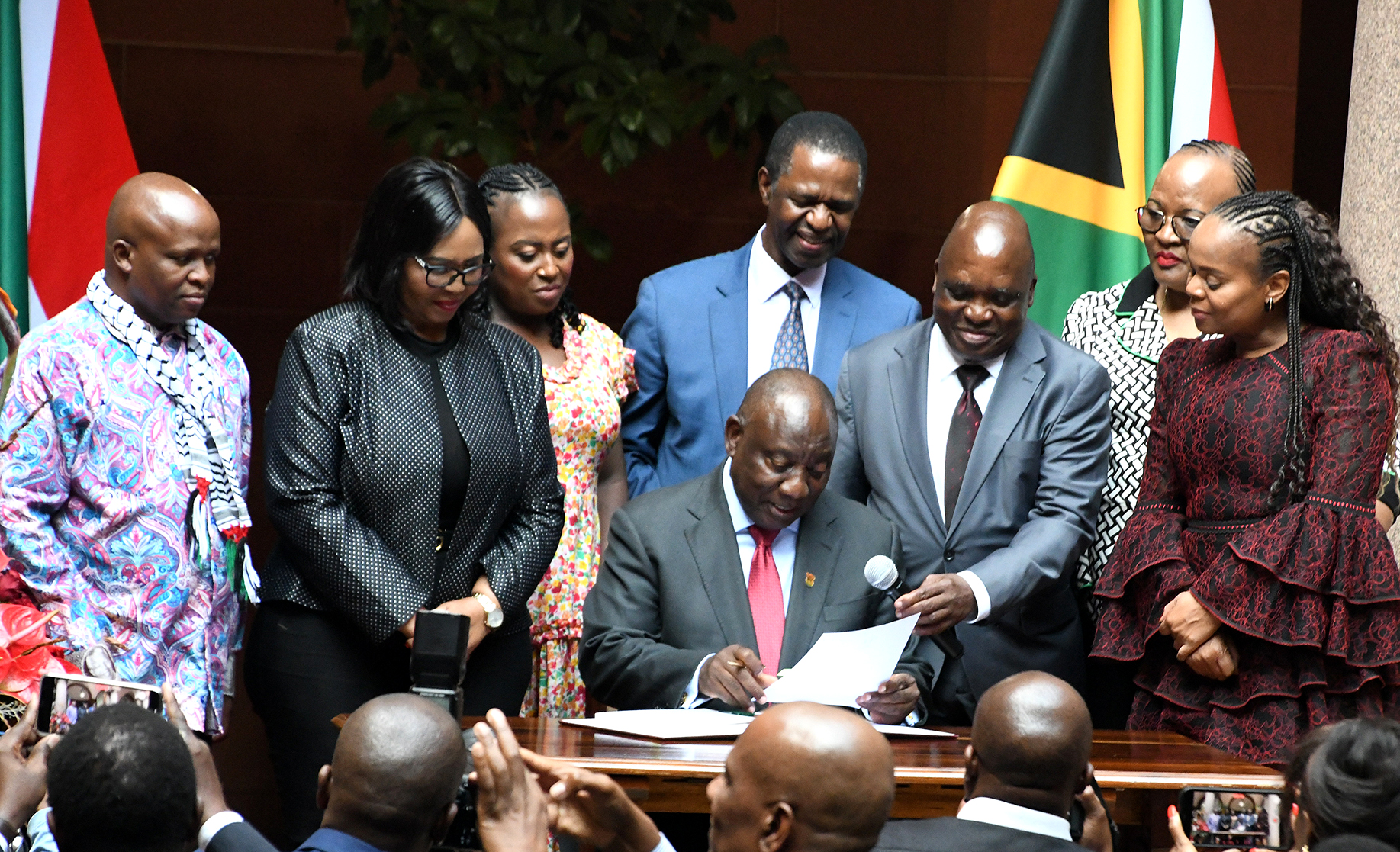Government and private sector representatives met on Tuesday for a regular checkup, and, by all accounts, the vital signs were positive. As well they should be, since we are all still pinching ourselves because load shedding seems to have ended. Ten years of rolling blackouts. Gone. Just like that.
“Just like that” is, of course, a misnomer – lots of different levers were thrown and pulleys pulled, one of which was the introduction of private sector teams rushing around from power station to power station trying to improve the systems.
Government also played a role, mainly by plonking down absolutely enormous amounts of taxpayers’ money to get Eskom out of debt (again) so that the institution could again start spending on upkeep. And there is now plenty of renewable energy in the private sector, reducing demand on Eskom.
Anyway, presumably it was a positive experience for both the government and the private sector and lots of lessons will have been learnt. The main political effect is that it’s got the load shedding monkey off the back of the ANC. The main economic effect is that the economy is no longer being retarded by the lack of power, which is positive for the private sector, as it is for everyone.
From a strategic point of view, both sides got something out of it. It’s been a classic win-win, and, as I mentioned at the start, the upside of government-business cooperation is now very clear. It bodes well for rolling this out to other problem areas like municipalities, water provision, investment and so on – if the sides have the capacity and the will to go there.
What’s intriguing to me is this: how far does this all go? Well, today we got a cold shower illustrating the limits of the relationship after Business Unity SA announced it was refusing to endorse the National Health Insurance scheme. In one sense, this is totally unsurprising. Business has thrown all its toys out of the cot over this legislation, which has now been passed, but is yet to be brought into effect. It argues that the system is unaffordable and unworkable, and it will damage SA’s medical care system.
The surprising thing is not that; it’s that the ANC keeps insisting that it intends to press ahead with the legislation as it stands because SA’s health system is inequitable since some citizens have the gall to use their own money to pay for private healthcare, as people do all over the world. So what happened is that the Health Department tried to foist on business a document which explicitly supports the scheme and business, unsurprisingly, said “no”.
The question now is this: why does the ANC think that interest groups which did not support the NHI legislation can now be persuaded to support the initiative? To be honest, I don’t know. The party may think that now the legislation is passed, if they keep pushing, it will gradually be accepted as a fait accompli and the industry will try to make peace with it.
Tenuous legislation
If so, this is a massive and worrying miscomprehension. Even politically, the legislation is now pretty tenuous. In all, 11 parties have signed the “statement of intent”, which established the Government of National Unity, or the coalition government, as the DA calls it. Of those, five are explicitly against the NHI legislation as it stands, although some are in favour of universal health coverage. That seems like a minority, but when you tally up the seats, pretty close to half of the MPs in the GNU oppose the legislation.
That’s a big problem because the statement of intent says sufficient consensus only comes into being when parties to the GNU representing 60% of seats in the National Assembly agree after reasonable attempts have been made to resolve disagreements and find common ground.
If I’m counting correctly (the position of some parties is unclear) the parties supporting the legislation have only 40% of the seats, way short of the 60% required. It’s slightly worrying that the ANC is not acting as though it realises this, and is in full “we are the boss” mode.
The ANC has two other problems. The first, of course, is that there are two legal challenges against the NHI legislation, and even simply on procedural grounds, the ANC’s bulldozer approach to the legislation is unlikely to sit favourably with the Constitutional Court.
But the second is actually more of a problem. The NHI Act intends that healthcare function by healthcare function will be gradually passed from the private sector to the public sector as it gets mandated by the Act’s coverage system. But how do you actually do that? Will all anaesthetists in Johannesburg suddenly be told one day to report to work at Baragwanath? This will all be massively disruptive, obvs.
As anaesthetists are engaged by the public sector, they will have to be disengaged by the private sector. This is just one of the thousands of issues glibly envisaged by the Act that would need public-private cooperation – of which there is none!
It is crucial to bear in mind that the government-business partnership is currently limited to three focus areas; power, logistics, and crime. The areas are carefully delineated precisely to avoid conflict. Consequently, the argument about NHI didn’t come up at all at this week’s meeting.
Conceptually, however, the model could be extended to healthcare outside of the NHI debate if they decide they have the capacity – and the will – to take it on. Which makes it even more of a pity that the government is refusing to back down in the slightest. DM





